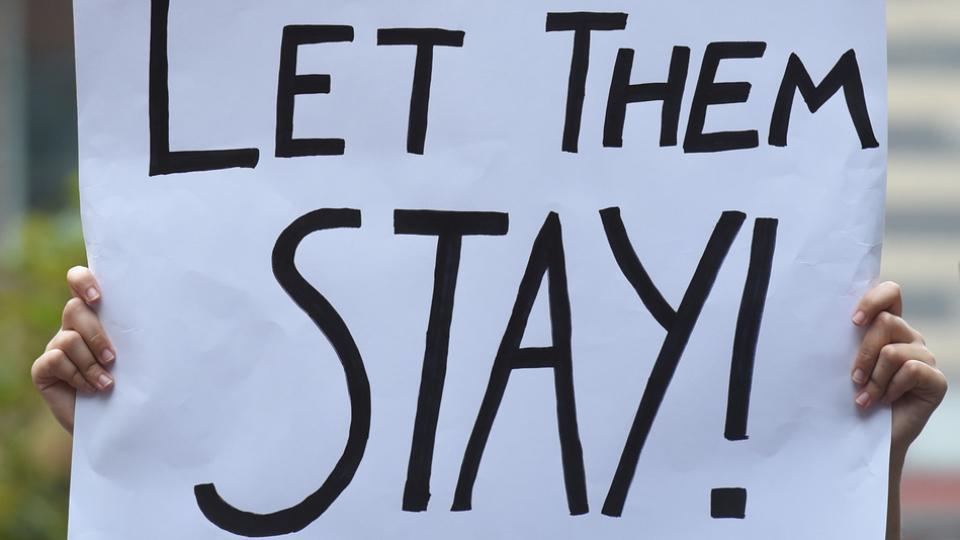#LetThemStay shows power of the people

I feel privileged to have been able to spend several hours on the community picket outside Lady Cilento Children's Hospital in Brisbane where people were rallying in solidarity with Asha.
Asha is the refugee baby who was being treated for burns after an accident in Australia's notorious offshore refugee detention camp, in the increasingly dictatorial Pacific island state of Nauru.
I was there during the last two days of the picket, following a week of amazing community support for the principled doctors, nurses and other hospital staff who refused to discharge Asha into the hands of immigration officials who intended to send her back to the Nauru camp.
The community solidarity was truly a moving thing to witness. From the lovely people who served for hours in the heat of the Queensland summer to those who kept the protest alive overnight.
Some right-wing media commentators tried to dismiss the protesters as “the usual rent-a-crowd”. But they were not. I met Patricia and Rod, a couple in their seventies who spent hours on the picket. They had watched the news of the hospital staff's dramatic stand and decided to come down and join the protest.
Patricia said: “This is the first time, we've been at a protest. And it may be my last,” she said wiping the sweat off her brow, before adding with a smile, “or maybe not.”
I met Larissa, Woohkool and Murrawah, three young Aboriginal women who came down with a large Aboriginal flag with the words “Let them stay” stitched on it.
I also met Rob Pyne, the state Labor MP for Cairns and the only quadriplegic member of parliament in Australia. He was prepared to put his body on the line to prevent any forced removal of baby Asha from the hospital.
There was a single mum and her son, with their colourful hand drawn placard; and Larry, a retired wharfie and veteran of many a trade union picket lines. There were folk who kept the protesters well-supplied with food, drink and other essential supplies. “Pizza solidarity,” someone chuckled before tucking in.
Throughout the protest there was constant support from people driving past, beeping or waving their solidarity. There were hardly any negative responses to the protest. This charged every protester with confidence and a sense of the awesome potential of people's power.
The protest was an important victory, even though baby Asha and her parents, who are now in “community detention” in Brisbane, might yet be forced back to Nauru when her medical condition improves.
What made this protest such a success?
First, the principled stand of the staff at Lady Cilento's sparked off the mass response. If everyone who was in such a position did the same, the entire system of refugee detention would collapse.
Secondly, and this may be a lasting effect, baby Asha's case humanised the thousands of asylum seekers who have become the victims of this cruel and immoral bipartisan police of mandatory detention.
Australian governments — Coalition and Labor — have worked hard to prevent the public from truly seeing these asylum seekers as people just like us. They are the victims of its systematic injustice and abuse.
Now that's well and truly busted. The faces of the children among the 267 asylum seekers facing imminent deportation to Nauru have been seen by millions.
Injustice has become law and, in our millions, we are resisting.
[Peter Boyle is the Socialist Alliance candidate for the federal seat of Sydney and has been an activist since the 1970s. To help out email sydney@socialist-alliance.org]